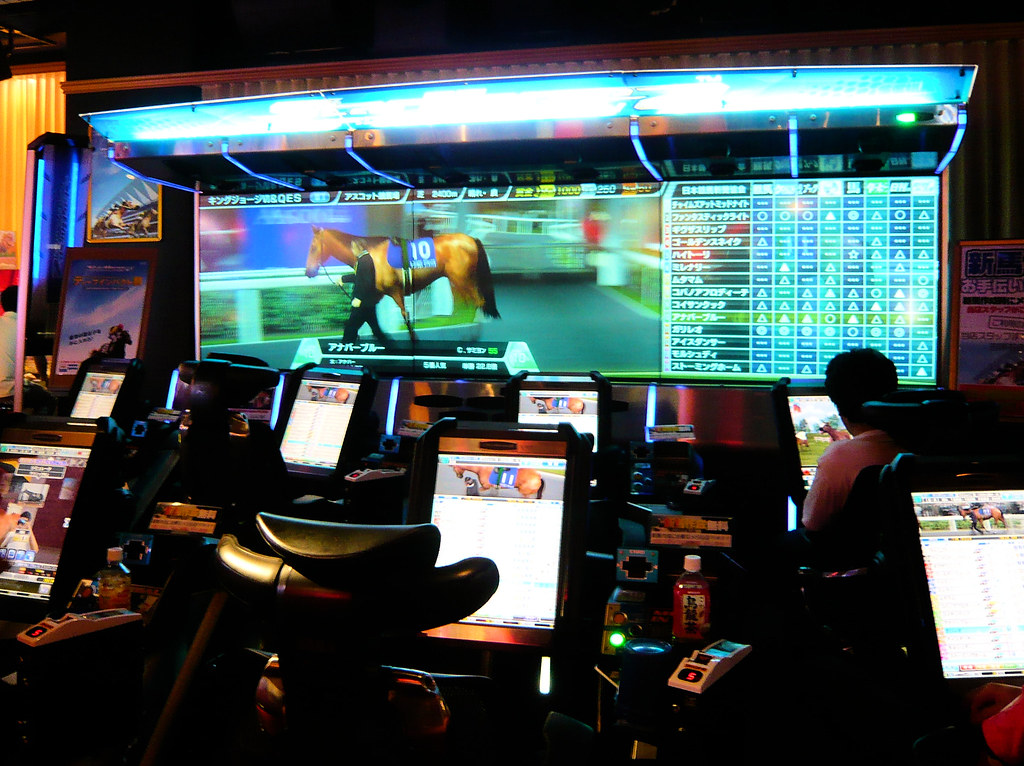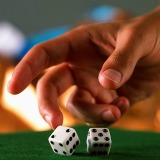The Psychology Of Gambling
The psychology of gambling in a nutshell:
 Virtual Horse Racing
Virtual Horse RacingGambling is a form of entertainment which has been enjoyed by responsible gamblers for hundreds of years.
It has plenty of detractors, who point not only to its potential for
addiction-forming, but claim that it’s a business which routinely
fleeces its patrons as ‘the house always wins’. Not that the patrons
seem to care much - many would point out that gambling is not just about
money, it’s a great form of entertainment.
What’s more, it’s pretty much the only form of entertainment around in which you have the chance to get back the money you paid to enjoy it (and more!). Nor is gambling addiction as common as people think - the majority of casual gamblers can do so without even a hint of dangerous or habit forming behaviour.
Why do people enjoy gambling so much? And why do some people get addicted to it when others seem immune?

Why Do We Enjoy Gambling?
Ask anyone why they think that gambling is fun, and you’re likely to get a lot of different answers. ‘It’s exciting’, ‘It’s sociable’, ‘You might win money!’. In fact, the reasons behind our enjoyment of gambling are complex and varied, and all of these factors play a part. You can even improve your chances with a mentoring coach.
Gambling locations like race tracks are sociable places, and gambling gives one a chance to consult and compare with one’s friends while choosing a horse, as well as adding an extra-sociable dimension to watching the race as you egg on (or boo) the picks of your friends·
Then there’s the excitement factor. It cannot be denied that you get a rush of adrenaline when watching a race or playing a game in which you are financially invested. The fact that you might win money adds an extra and thrilling edge to the whole endeavour.
Most gamblers are content to simply enjoy themselves, and will happily cut their losses and walk away before a problematic point is reached. Some people, however, experience the psychology of gambling differently - and it’s these differing neurochemical and psychological reactions which make the difference between a healthy gambler and an addict.
The Psychology Of Gambling Addiction

One of the chemicals involved in addiction is dopamine - a chemical which gives us a rush of pleasure. It’s used to ‘reward’ us for positive actions which promote our survival or the survival of the species. Outside of a wild format, the brain has interpreted what needs ‘rewarding’ and what does not in a variety of ways.
Making money, for example, gives many people a rush of dopamine. As you’d expect, winning gives most gamblers a hit of dopamine. Here, however, is where it gets complicated. While the brain’s reward circuits light up like Christmas trees when non-addicted gamblers have a win, for addicted gamblers, the same circuits are activated when they NEARLY get lucky.
For reasons which are not fully understood, this causes them to ‘loss chase’ - plunge good money after bad in the belief that a big win must be coming soon. Near misses are more common than wins, so the neurochemical rewards keep coming, and the individual concerned may quickly spiral into problematic addictive behaviour.
Make no mistake, gambling addiction can ruin lives, getting people into terrible debt and wreaking havoc with relationships, careers, and self-respect. We would advise anyone who habitually chases losses to avoid betting, for the sake of your health.
Why Are The Brains Of Addicts So Different?
Nobody is entirely sure why the brains of gambling addicts and the brains of healthy gamblers react to the pastime in such different ways.
There is a lot of evidence to suggest that susceptibility to gambling addiction may be genetic. If one of your parents has had a problem with gambling, you should set yourself some clear limits and be sure to stick to them when you have a flutter!
Many people believe that a propensity towards gambling addiction may have a lot to do with structural differences relating to reward circuits in the brain.
It has been noted that individuals with Parkinson’s Disease - a condition which severely affects the brain’s ability to process dopamine - are at great risk of developing gambling addictions. However, if you have no family history of gambling addiction, no structural issues with your brain, and haven’t displayed a tendency to loss-chase then it’s likely that you - like the majority of people who gamble - will be able to do so without any danger whatsoever.
This article on the psychology of gambling is kindly contributed by Anne Dawson
Further articles by this author - Succeed at Bingo
Return to A History of Horse Racing from Psychology Of Gambling
The Popular Daily Lay Tips UK/IRE £5 per month
Subscribe Below
French Lay Racing Tips for £5 per month
Subscribe below



